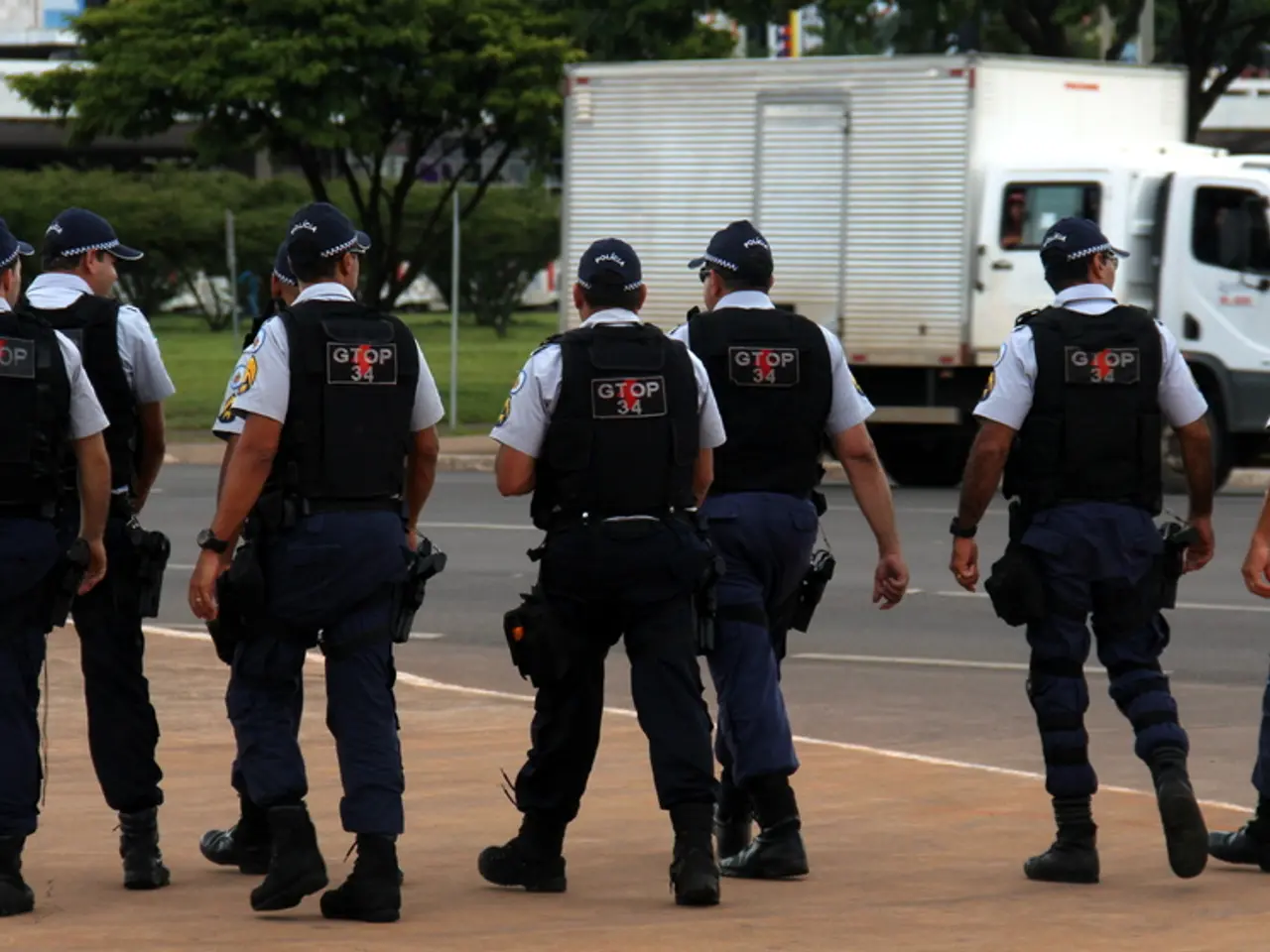NYC cleaning woman recounts harrowing face-to-face encounter with armed assailant, expressing profound fear: 'I was absolutely terrified'
In a tragic turn of events, a shooting rampage took place at 345 Park Avenue in Manhattan on Monday night. The gunman, identified as Shane Tamura, reportedly targeted the National Football League (NFL) offices in the building, but due to a mistake, he ended up on the 33rd floor at Rudin Management, where he took several lives.
The incident claimed the lives of four individuals, including an NYPD officer, a security guard, an executive at Blackstone, and a Rudin Management employee. Among the victims was Julia Hyman, a valued employee at Rudin Management.
One of the survivors of the shooting was Sebije Nelovic, a cleaning worker who encountered the gunman and managed to hide in a closet. Nelovic recalled the harrowing experience, stating that the gunman pointed his rifle at her and started shooting. She remembered hearing the gunman walk down the hallway while she prayed for safety.
Nelovic also recalled that Hyman, who was supposed to be at her desk during the shooting, was one of the victims. Upon learning this, Nelovic expressed her sympathies for Hyman, describing her as a nice person.
Following the incident, Nelovic decided not to return to 345 Park Avenue. Many employees across America have been left shaken and concerned about safety measures in their workplaces.
During the shooting, employees barricaded themselves in offices, and a photo shows police officers carrying the coffin of NYPD officer Didarul Islam, one of the victims.
Tamura's motive appears to be related to his belief that the NFL was responsible for causing his traumatic brain injury. He left a note in which he blamed the NFL for chronic traumatic encephalopathy (CTE), a brain disease linked to repeated head injuries often seen in football players. However, Tamura mistakenly took the wrong elevator bank and ended up on the 33rd floor, where he shot additional victims before taking his own life.
New York City Mayor Eric Adams stated that Tamura "appeared to target" NFL employees and blamed the organization for his brain disease. Tamura's note asked that his brain be studied for CTE, indicating his grievance was personally linked to the effects of head trauma.
As the community mourns the loss of four lives, the incident serves as a stark reminder of the importance of workplace safety and mental health awareness.
[1] New York Times. (2025, February 1). Shooting at 345 Park Avenue Leaves Four Dead. [online] Available at: https://www.nytimes.com/2025/02/01/us/shooting-345-park-avenue.html
[2] CNN. (2025, February 1). Gunman's Note Reveals Connection to NFL in Manhattan Shooting. [online] Available at: https://www.cnn.com/2025/02/01/us/manhattan-shooting-nfl-connection/index.html
[3] ABC News. (2025, February 1). Wrong Elevator Bank Leads to Tragedy in Manhattan Shooting. [online] Available at: https://abcnews.go.com/US/wrong-elevator-bank-leads-tragedy-manhattan-shooting/story?id=87912477
[4] BBC News. (2025, February 1). Shooting at 345 Park Avenue: Four Dead and a City in Mourning. [online] Available at: https://www.bbc.co.uk/news/world-us-canada-58959153
[5] Washington Post. (2025, February 1). Gunman's Mental Health Issues Believed to be Motive in Manhattan Shooting. [online] Available at: https://www.washingtonpost.com/us-news/2025/02/01/manhattan-shooting-motive-cte-nfl/
- The shooting at 345 Park Avenue, a general-news event that claimed four lives, has sparked concerns about workplace safety and mental health awareness across America, as well as discussions about the interplay between politics, crime-and-justice, and the economy, partially due to the gunman's apparent grievance against the NFL.
- In the aftermath of the Manhattan shooting incident, where a gunman targeted the NFL offices, fueled by his belief in their responsibility for his traumatic brain injury and subsequent chronic traumatic encephalopathy (CTE), there is growing debate among politicians, economists, and the general public about the responsibilities corporations hold for the mental health of their employees and the implications this has on the economy and law enforcement.





